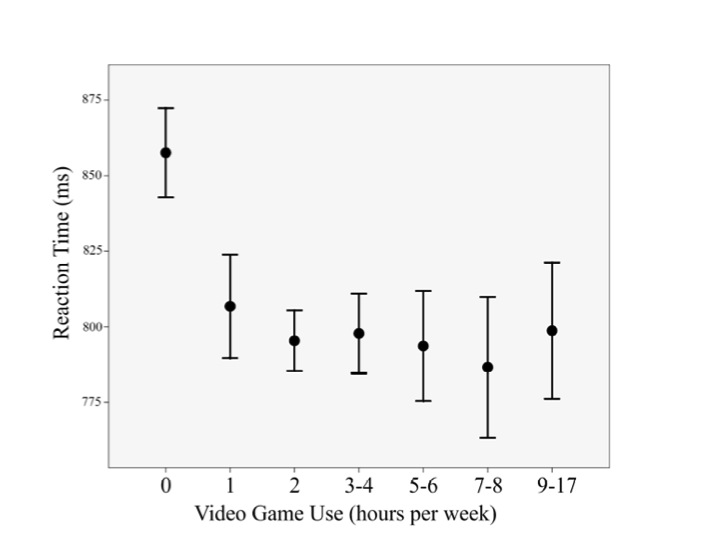
Video games have come a long way from Frogger and Pac-Man. With their incredible graphics and enticing missions - kids can't get enough. Although most parents allow some gaming, there are still many questions regarding the impact that video games have on children such as - which games should they play (or avoid) and how long should they play for?
A recent study in Annals of Neurology gives the parents of kids who game reason to breathe easier and feel less guilty about the time spent in front of a screen. The researchers studied 2,442 children in Barcelona, aged 7-11 years. Using parent questionnaires, the number of hours per week that children played video games was estimated and used to analyze the relationship between the amount of time spent gaming and certain cognitive abilities and behavior problems.
Not surprisingly, one of the areas where the gamers excelled was in faster and more consistent motor responses to visual stimuli (reaction time.) The children who did not play video games at all had a reaction time greater than 850ms, which can be seen in the figure below. The children who played video games for one hour or more toggled around an 800ms reaction time. With the statistical error taken into account (represented by the vertical bars extending out from the dots on the graph) there was really no difference between any of the groups that played one hour or more of video games. This lack of an increase over time spent playing is a bit puzzling... unlike other exercises, when considering the benefit of gaming and reaction time, more is not better. 
Other interesting results from the study were:
- Boys played video games more than girls.
- Twenty three children had to be excluded from the study because they were categorized as ‘extreme’ video gamers (playing ≥ 18 hours a week.)
- Gaming had no effects on attentional features or working memory.
- Gamers showed significantly higher school achievement scores.
- The children who spent more time gaming spent less time sleeping.
- Gamers and non-gamers parents’ were equally educated.
- (59.1% of mothers of gamers had university-level education versus 61.0% in non-gamers.)
One negative point regarding gaming revealed through the study was that children who spent more time gaming also had more behavioral difficulties (particularly in regards to conduct problems and peer conflicts) with the kids in the 9-17 hour category having the most difficulties. This is hard to assess in the context of this study, as it remains unclear whether the long hours of video games caused the behavioral difficulties or whether children with behavioral difficulties play more video games. Although the conclusion is unclear, this information is important and should be used as a jumping off point to study this association further.
And so, we can now add gaming to the huge list of health issues where we need to use our common sense in order to set a reasonable limit for our children. But, for the luddites out there, this study shows that a little gaming never hurt anyone (and maybe it will even help your kids one day when a deer runs out in front of their car.) As Dr. Pujol said, "Video gaming per se is neither good nor bad, but its level of use makes it so," making studies like this that parse out the effects of time spent gaming incredibly important.



